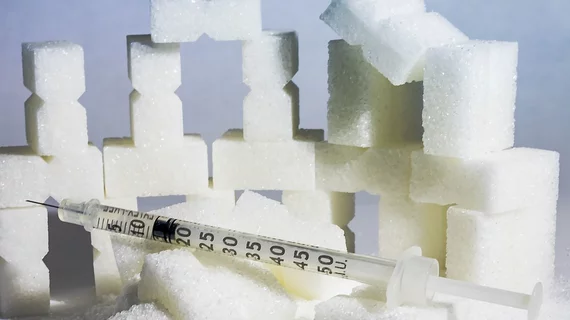California partners with Civica Rx for affordable insulin
California Gov. Gavin Newsom announced the state has teamed up with CivicaRx to manufacture its own insulin at a much lower cost than current market rates.
CivicaRx is a nonprofit generic drug maker that was founded in 2018 by a group of U.S. health systems and philanthropic organizations to reduce drug shortages and help lower the skyrocketing cost of drugs in the United States. California and CivicaRx penned a 10-year deal, and, once approved, the products will be offered to Californians and nationwide for lower costs.
Newsome announced last year that California would produce its own insulin to increase affordability for the drug, which millions of people across the United States depend on daily for management of diabetes.
“Diabetes has become an overwhelmingly expensive chronic condition, and it is heartbreaking that millions of people in California and across the U.S. are faced with the possibility of having to ration their care and put their lives at risk because they can no longer afford insulin,” Ned McCoy, president and CEO of Civica, said in a statement. “We applaud California for its mission-driven commitment to lowering the cost of insulin and look forward to our groundbreaking partnership on behalf of people living with diabetes.”
The agreement includes a $50 million investment toward the development, manufacture and distribution of Civica’s low-cost insulins. Under terms of the deal, Civica will produce three insulins: glargine, lispro and aspart. The biologics are meant to be interchangeable with Lantus, Humalog and Novolog, respectively. The medicines will be available in vials and prefilled pens under the CalRx label.
The cost of the medications are significantly lower than those currently on the market, with the suggested retail price of CalRx’s offerings of no more than $30 per 10 mL vial and no more than $55 for a box of five 3 mL pre-filled pen, according to the press release. The prices are so low that even insured Californians will likely see savings from their current cost sharing amounts.
“California’s partnership with Civica is a game changer,” Newsom said in a press release. “We are proud to be working with Civica to bring true price competition into the insulin drug market and ease the financial burden for Californians living with diabetes. Reducing the high cost of insulin is a critical step toward addressing health inequities and ensuring affordable and accessible healthcare for all.”
The partnership comes as the cost of insulin has soared over the past several years. The Biden administration recently capped out-of-pocket insulin prices for Medicare Part D beneficiaries at $35 per month under the Inflation Reduction Act.

